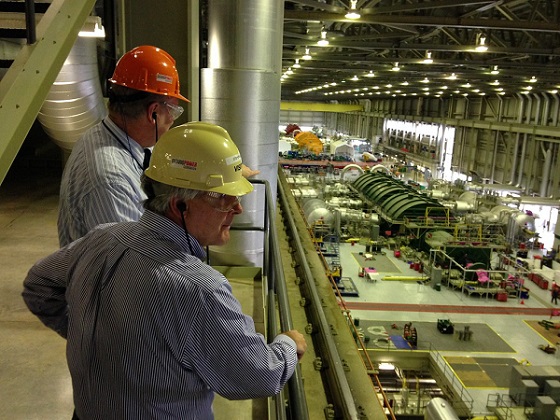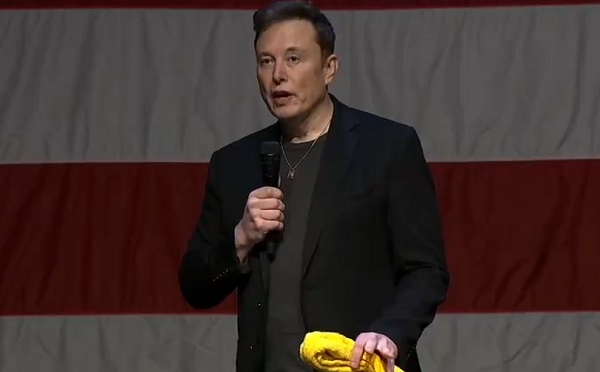Energy
Oil and gas industry critic in Canadian senate flew 100K in past year to climate conferences: report

Senator Rosa Galvez
From LifeSiteNews
Senator Rosa Valdez has traveled extensively to advocate against the use of fossil fuels.
Environmental hypocrisy from left-leaning Canadian politicians has again been exposed after records show a senator known for her opposition to the nation’s oil and gas industry in the past year alone jetted over 100,000 kilometers to attend so-called “climate change” conferences.
Senator Rosa Galvez, who was appointed by Prime Minister Justin Trudeau in 2016, according to newly filed records as per Blacklock’s Reporter, show that over the past year she flew some 100,084 kilometers (62,189 miles) to attend climate change junkets.
Galvez’s multiple trip charges were said to have been paid by the Parliamentarians’ Network for a Fossil Fuel Free Future along with the American Society of Civil Engineers and other sponsors.
According to the records, Galvez continued to speak harshly against oil and gas, which is a large part of the Canadian economy, right up until taking a jet to fly to a May 25 Casablanca conference on “energy justice.”
The senator also attended a May 2 meeting in Sao Paulo, Brazil about “fossil fuel phaseout in the Amazon” as well as multiple other conferences whose themes were focused on phasing out the use of oil and gas.
Galvez is a self-described environmentalist, and according to her official biography, she is one of Canada’s “leading experts in pollution control and its effects on human health.” She has claimed that the “climate crisis is the greatest challenge of our time and will require an unprecedented transformation.”
Thus far, she has not commented on her recently disclosed travel.
In 2019, as chair of the environment committee, she was tasked with overseeing hearings on a bill that was ruled unconstitutional, which impacts Canada’s oil and gas sector, that is Bill C-69, also known as the “no-more pipelines” bill.
Since taking office in 2015, the Trudeau government has continued to push a radical environmental agenda like the agendas being pushed by the World Economic Forum’s “Great Reset” and the United Nations’ “Sustainable Development Goals.”
When it comes to so-called man-caused “climate change,” which leftists have been preaching about for years, a June 2017 peer-reviewed study by two scientists and a veteran statistician found that most of the recent global warming data have been “fabricated by climate scientists to make it look more frightening.”
LifeSiteNews recently reported on another display of hypocrisy on how Canada’s “Climate Change Ambassador,” appointed by self-proclaimed socialist Environment Minister Steven Guilbeault, has billed taxpayers $254,000 for travel expenses in just two years on the job.
There have been two recent court rulings that have dealt a blow to Trudeau’s environmental laws, however, after provinces including Alberta and Saskatchewan took on the federal government over laws impacting the oil and gas industry.
The most recent was the Federal Court of Canada on November 16 overturned the Trudeau government’s ban on single-use plastic, calling it “unreasonable and unconstitutional.”
The second ruling comes after Canada’s Supreme Court recently sided in favor of provincial autonomy when it comes to natural resources. The Supreme Court recently ruled that Trudeau’s law, C-69, dubbed the “no-more pipelines” bill, is “mostly unconstitutional.” This was a huge win for Alberta and Saskatchewan, which challenged the law in court. The decision returned authority over the pipelines to provincial governments, meaning oil and gas projects headed up by the provinces should be allowed to proceed without federal intrusion.
The Trudeau government, however, seems insistent on defying the recent rulings by pushing forward with its various regulations.
It has also used the climate “change” agenda to justify applying a punitive carbon tax to Canadians. As reported by LifeSiteNews, Trudeau’s carbon tax is costing Canadians hundreds of dollars annually, as government rebates are not enough to compensate for high fuel costs.
Energy
Is Canada the next nuclear superpower?

From Resource Works
The rise of AI and other technologies have pushed energy demand through the roof, and Canada can help power that with nuclear.
Good to see Prime Minister Justin Trudeau pushing nuclear power as a key contributor to meeting the world’s soaring demand for electricity.
“The energy consumption necessary around AI (artificial intelligence) nobody has properly understood yet,” he said. “We have stepped up big time on nuclear.”
He cited Canada’s uranium reserves and progress in building both full-scale CANDU reactors and small modular reactors (SMRs). He said other countries need to “skate where the puck is going” on cleaner energy sources.
“We know that if we are going to meet our net-zero targets around the world, and certainly in this region, nuclear is going to be really part of the mix.”
He stopped short of saying Canada would build more major nuclear reactors for domestic use but spoke about the development of SMRs. Ottawa has previously stated it wants to become “a global leader in SMR deployment.”
Meanwhile, International Trade Minister Mary Ng said Canada is launching a gateway for nuclear development in the Asia-Pacific region. She said growing Pacific Rim economies will face increasing demand for electricity, not just to curb emissions.
“All this followed CANDU licence-holder AtkinsRéalis announcing a “multi-billion-dollar” sale of two CANDU reactors to Romania, the first to be built since 2007. The federal government contributed $3 billion, the company said.
And in one of our Resource Works Power Struggle podcasts, energy journalist Robert Bryce said: “We’re seeing the revitalization of the nuclear sector… There are a lot of promising signs.”
Also from Bryce: “Forty-seven per cent of the people on the planet today live in electricity poverty. There are over three billion people who live in the unplugged world; 3.7 billion who live in places where electricity consumption is less than what’s consumed by an average kitchen refrigerator.”
Policy Options magazine notes how Canada and 21 other countries signed a 2023 pledge to triple nuclear energy capacity by 2050, and says: “The reality would appear to be clear: there is no feasible net-zero future without the deployment of new nuclear power.”
For Canada, it adds: “We have an opportunity to expand our global status, but this requires overcoming years of policy inaction while other nations have modernized their nuclear strategies. To triple our nuclear capacity by 2050, we need clear priorities and unwavering political commitment.”
Earlier this year, François-Philippe Champagne, federal minister of innovation, science and industry, said nuclear power needs to grow for the world’s renewable-energy economy.
“Nuclear, definitely. For me, we have to look at hydro, we have to look at nuclear, we have to look at small modular reactors, we have to look at wind, we have to look at solar.”
Jonathan Wilkinson, energy and natural resources minister, promised to expedite the approval process for new Canadian nuclear projects.
Canada now gets about 15% of its electricity from nuclear generation, mostly from reactors in Ontario.
But the last nuclear reactor to come into service in Canada was at the Darlington station, east of Toronto, back in 1993. No new nuclear project has been approved since then, but multi-million-dollar upgrades are underway at existing Ontario plants.
Heather Exner-Pirot of the Macdonald-Laurier Institute and Jesse McCormick of the First Nations Major Projects Coalition see SMRs and micro-reactors as a plus for rural and remote areas of Canada that now rely on diesel to generate power. Some First Nations are also interested.
However, the two commentators point out that nuclear developers will need Indigenous support and will have to “provide meaningful economic benefits and consider Indigenous perspectives in project design.”
Now, the Wabigoon Lake nation in Ontario has stepped up as a potential host to a deep underground facility for storing nuclear waste.
As Canada looks to SMRs to meet electricity demand, our country also hopes to sell more uranium to other nations—perhaps with a little help from Russia.
In October, Russian President Vladimir Putin proposed restrictions on Russian uranium exports in retaliation for Western sanctions on Russian oil, gas, and LNG.
That boosted hopes for increased exports of Canadian uranium.
Canada, once the world’s largest uranium producer, is now the world’s second-largest, behind Kazakhstan, and accounts for roughly 13% of global output.
Putin’s threat gave more momentum to the plans underway by NexGen Energy for its $4-billion Rook 1 uranium mine in Saskatchewan.
The Canadian Nuclear Safety Commission has completed its final technical review of the project. Next comes a commission hearing, followed by a final decision on approval.
NexGen is working on detailed engineering plans in preparation for full construction, pending federal approval.
NexGen could push Canada to become the world’s largest uranium producer over the next decade. Other companies are rushing to Saskatchewan to start exploration projects in the Athabasca region, while existing players are reopening dormant mines.
All this follows the commitment by nearly two dozen countries in 2023 to triple their nuclear-energy output by 2050.
And so Britain’s BBC News topped a recent roundup on nuclear power with this headline: “Why Canada could become the next nuclear energy ‘superpower’.”
Alberta
REPORT: Alberta municipalities hit with $37 million carbon tax tab in 2023

Grande Prairie. Getty Images photo
From the Canadian Energy Centre
Federal cash grab driving costs for local governments, driving up property taxes
New data shows the painful economic impact of the federal carbon tax on municipalities.
Municipalities in Alberta paid out more than $37 million in federal carbon taxes in 2023, based on a recent survey commissioned by Alberta Municipal Affairs, with data provided to the Canadian Energy Centre.
About $760,000 of that came from the City of Grande Prairie. In a statement, Mayor Jackie Clayton said “if the carbon tax were removed, City property taxes could be reduced by 0.6 per cent, providing direct financial relief to residents and businesses in Grande Prairie.”
Conducted in October, the survey asked municipal districts, towns and cities in Alberta to disclose the amount of carbon tax paid out for the heating and electrifying of municipal assets and fuel for fleet vehicles.
With these funds, Alberta municipalities could have hired 7,789 high school students at $15 per hour last year with the amount paid to Ottawa.
The cost on municipalities includes:
Lloydminster: $422,248
Calgary: $1,230,300 (estimate)
Medicine Hat: $876,237
Lethbridge: $1,398,000 (estimate)
Grande Prairie: $757,562
Crowsnest Pass: $71,100
Red Deer: $1,495,945
Bonnyville: $19,484
Hinton: $66,829
Several municipalities also noted substantial indirect costs from the carbon tax, including higher rates from vendors that serve the municipality – like gravel truck drivers and road repair providers – passing increased fuel prices onto local governments.
The rising price for materials and goods like traffic lights, steel, lumber and cement, due to higher transportation costs are also hitting the bottom line for local governments.
The City of Grande Prairie paid out $89 million in goods and services in 2023, and the indirect costs of the carbon tax “have had an inflationary impact on those expenses” in addition to the direct costs of the tax.
In her press conference announcing Alberta’s challenge to the federal carbon tax on Oct. 29, 2024, Premier Danielle Smith addressed the pressures the carbon tax places on municipal bottom lines.
“In 2023 alone, the City of Calgary could have hired an additional 112 police officers or firefighters for the amount they sent to Ottawa for the carbon tax,” she said.
In a statement issued on Oct. 7, 2024, Ontario Conservative MP Ryan Williams, shadow minister for international trade, said this issue is nationwide.
“In Belleville, Ontario, the impact of the carbon tax is particularly notable. The city faces an extra $410,000 annually in costs – a burden that directly translates to an increase of 0.37 per cent on residents’ property tax bills.”
There is no rebate yet provided on retail carbon pricing for towns, cities and counties.
In October, the council in Belleville passed a motion asking the federal government to return in full all carbon taxes paid by municipalities in Canada.
The unaltered reproduction of this content is free of charge with attribution to the Canadian Energy Centre.
-

 Brownstone Institute1 day ago
Brownstone Institute1 day agoThe Most Devastating Report So Far
-

 Economy2 days ago
Economy2 days agoCOP 29 leaders demand over a $1 trillion a year in climate reparations from ‘wealthy’ nations. They don’t deserve a nickel.
-

 Censorship Industrial Complex1 day ago
Censorship Industrial Complex1 day agoAnother Mass Grave?
-

 ESG12 hours ago
ESG12 hours agoCan’t afford Rent? Groceries for your kids? Trudeau says suck it up and pay the tax!
-

 Alberta1 day ago
Alberta1 day agoMAiD In Alberta: Province surveying Albertans about assisted suicide policies
-

 Energy1 day ago
Energy1 day agoOttawa’s proposed emission cap lacks any solid scientific or economic rationale
-

 Alberta1 day ago
Alberta1 day agoOn gender, Alberta is following the science
-

 International13 hours ago
International13 hours agoElon Musk praises families on X: ‘We should teach fear of childlessness,’ not pregnancy


